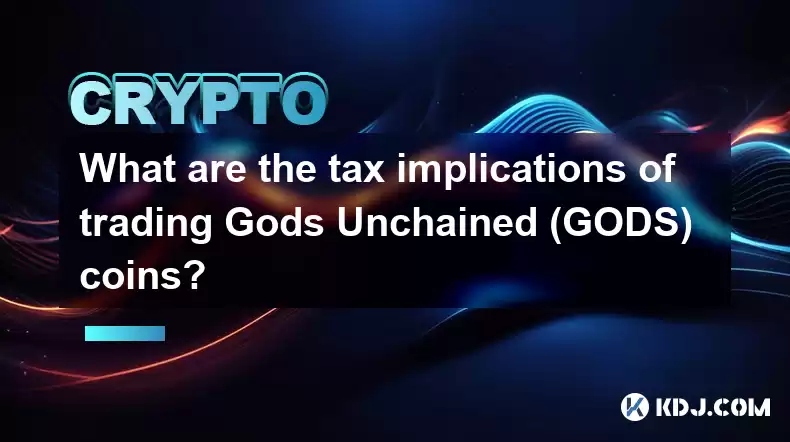-
 Bitcoin
Bitcoin $118800
-0.34% -
 Ethereum
Ethereum $4237
-0.62% -
 XRP
XRP $3.141
-1.79% -
 Tether USDt
Tether USDt $1.000
0.00% -
 BNB
BNB $808.8
0.01% -
 Solana
Solana $175.2
-3.73% -
 USDC
USDC $0.0000
0.01% -
 Dogecoin
Dogecoin $0.2238
-4.06% -
 TRON
TRON $0.3466
2.21% -
 Cardano
Cardano $0.7761
-3.07% -
 Hyperliquid
Hyperliquid $43.18
-4.79% -
 Chainlink
Chainlink $21.07
-3.83% -
 Stellar
Stellar $0.4347
-2.12% -
 Sui
Sui $3.686
-4.85% -
 Bitcoin Cash
Bitcoin Cash $581.5
1.78% -
 Hedera
Hedera $0.2488
-4.10% -
 Ethena USDe
Ethena USDe $1.001
-0.03% -
 Avalanche
Avalanche $22.89
-3.94% -
 Litecoin
Litecoin $120.0
-2.10% -
 Toncoin
Toncoin $3.394
1.58% -
 UNUS SED LEO
UNUS SED LEO $8.976
-1.54% -
 Shiba Inu
Shiba Inu $0.00001297
-4.26% -
 Uniswap
Uniswap $11.08
0.60% -
 Polkadot
Polkadot $3.873
-4.40% -
 Cronos
Cronos $0.1682
2.02% -
 Dai
Dai $1.000
0.00% -
 Ethena
Ethena $0.8056
-2.09% -
 Bitget Token
Bitget Token $4.413
-0.95% -
 Monero
Monero $264.4
-0.70% -
 Pepe
Pepe $0.00001122
-7.04%
What are the tax implications of trading Gods Unchained (GODS) coins?
The classification of GODS coins as a capital asset or collectible determines the tax implications, including taxable events, calculation of gains or losses, applicable tax rates, reporting requirements, and the potential need for professional guidance.
Dec 25, 2024 at 12:24 pm

Key Points
- Understand the classification of GODS coins as a capital asset or collectible
- Identifying taxable events, including selling, trading, and staking
- Calculating gains or losses and their impact on tax liability
- Understanding the different tax rates applicable to cryptocurrencies
- Reporting GODS transactions accurately on tax returns
- Seeking professional guidance from a tax expert
Tax Implications of Trading Gods Unchained (GODS) Coins
1. Classification of GODS Coins
GODS coins, like any other cryptocurrency, are considered a capital asset or collectible under the eyes of tax authorities. This classification determines the tax implications associated with trading these coins.
2. Taxable Events
Several activities related to GODS coins can trigger taxable events, including:
- Selling GODS: Selling GODS for fiat currencies (e.g., USD, EUR) or other cryptocurrencies constitutes a taxable event.
- Trading GODS: Exchanging GODS for other cryptocurrencies is also considered a taxable event.
- Staking GODS: Staking GODS to earn rewards may not be a taxable event immediately, but the rewards received may be taxable as ordinary income.
3. Calculating Gains or Losses
When GODS coins are sold or traded, the difference between the purchase price (or cost basis) and the sale price determines the gain or loss. This gain or loss is then used to calculate the tax liability. Short-term capital gains or losses (held for less than a year) are taxed at ordinary income rates, while long-term capital gains or losses (held for more than a year) benefit from more favorable tax rates.
4. Tax Rates
The tax rates applicable to cryptocurrency transactions vary depending on the tax jurisdiction and the classification of the asset (capital asset or collectible). Capital gains from the sale or trade of GODS coins may be subject to short-term capital gains tax rates (up to 37%) or long-term capital gains tax rates (0%-20%). In some cases, collectibles may be subject to a flat collectibles tax rate.
5. Reporting GODS Transactions
Accurate reporting of GODS transactions is crucial for tax compliance. Cryptocurrencies are not yet universally recognized as a form of currency by all tax authorities, and their treatment can vary. It is recommended to consult with a tax expert to determine the specific reporting requirements in your jurisdiction.
6. Seeking Professional Guidance
Due to the complexities and evolving nature of cryptocurrency taxation, seeking professional guidance from a tax expert is highly recommended. They can provide personalized advice tailored to your specific situation, ensuring proper compliance and minimizing potential tax liabilities.
FAQs
Q: Are GODS coins considered a security?
A: Whether GODS coins are considered a security is subject to the specific facts and circumstances surrounding their issuance and trading. This classification is determined by regulators and may impact tax treatment.
Q: What happens if I lose GODS coins?
A: Losses incurred from stolen or lost GODS coins are generally not deductible for tax purposes. However, it is crucial to report the loss on your tax return for record-keeping purposes.
Q: Can I offset GODS losses against other capital gains?
A: Yes, losses incurred from the sale or trade of GODS coins can be offset against capital gains from other sources. This helps reduce your overall tax liability.
Q: How often should I report GODS transactions?
A: The frequency of reporting GODS transactions depends on the tax jurisdiction and filing requirements. Consulting with a tax expert is recommended to determine the specific deadlines and thresholds applicable to you.
Q: What records should I keep for GODS transactions?
A: It is crucial to maintain detailed records of all GODS transactions, including purchase prices, sale proceeds, trade details, and any other relevant information. These records substantiate your tax reporting and provide evidence of compliance.
Disclaimer:info@kdj.com
The information provided is not trading advice. kdj.com does not assume any responsibility for any investments made based on the information provided in this article. Cryptocurrencies are highly volatile and it is highly recommended that you invest with caution after thorough research!
If you believe that the content used on this website infringes your copyright, please contact us immediately (info@kdj.com) and we will delete it promptly.
- BlockDAG, Chainlink, Hedera: The Cryptos Enterprises are Eyeing
- 2025-08-12 09:30:12
- Dogecoin's Wild Ride: Big Holders, Price Push, and What's Next for the Meme Coin
- 2025-08-12 08:30:12
- Coin Master Board Adventure: Free Energy and the Thrill of the Board
- 2025-08-12 08:50:12
- Bitcoin to $133,000? Here's What the Experts Are Saying
- 2025-08-12 08:30:12
- LYNO AI Presale: Early Bird Opportunity Before Token Price Hike
- 2025-08-12 08:50:12
- Dogecoin, Tron Update, Cold Wallet ROI: Navigating Crypto's Choppy Waters
- 2025-08-12 09:30:12
Related knowledge

How to purchase Aragon (ANT)?
Aug 09,2025 at 11:56pm
Understanding Aragon (ANT) and Its PurposeAragon (ANT) is a decentralized governance token that powers the Aragon Network, a platform built on the Eth...

Where to trade Band Protocol (BAND)?
Aug 10,2025 at 11:36pm
Understanding the Role of Private Keys in Cryptocurrency WalletsIn the world of cryptocurrency, a private key is one of the most critical components o...

What is the most secure way to buy Ocean Protocol (OCEAN)?
Aug 10,2025 at 01:01pm
Understanding Ocean Protocol (OCEAN) and Its EcosystemOcean Protocol (OCEAN) is a decentralized data exchange platform built on blockchain technology,...

Where can I buy UMA (UMA)?
Aug 07,2025 at 06:42pm
Understanding UMA and Its Role in Decentralized FinanceUMA (Universal Market Access) is an Ethereum-based decentralized finance (DeFi) protocol design...

How to buy Storj (STORJ) tokens?
Aug 09,2025 at 07:28am
Understanding Storj (STORJ) and Its Role in Decentralized StorageStorj is a decentralized cloud storage platform that leverages blockchain technology ...

Where to find the best price for Audius (AUDIO)?
Aug 11,2025 at 04:01pm
Understanding the Basics of Ethereum StakingEthereum staking refers to the process of locking up ETH tokens to support the security and operations of ...

How to purchase Aragon (ANT)?
Aug 09,2025 at 11:56pm
Understanding Aragon (ANT) and Its PurposeAragon (ANT) is a decentralized governance token that powers the Aragon Network, a platform built on the Eth...

Where to trade Band Protocol (BAND)?
Aug 10,2025 at 11:36pm
Understanding the Role of Private Keys in Cryptocurrency WalletsIn the world of cryptocurrency, a private key is one of the most critical components o...

What is the most secure way to buy Ocean Protocol (OCEAN)?
Aug 10,2025 at 01:01pm
Understanding Ocean Protocol (OCEAN) and Its EcosystemOcean Protocol (OCEAN) is a decentralized data exchange platform built on blockchain technology,...

Where can I buy UMA (UMA)?
Aug 07,2025 at 06:42pm
Understanding UMA and Its Role in Decentralized FinanceUMA (Universal Market Access) is an Ethereum-based decentralized finance (DeFi) protocol design...

How to buy Storj (STORJ) tokens?
Aug 09,2025 at 07:28am
Understanding Storj (STORJ) and Its Role in Decentralized StorageStorj is a decentralized cloud storage platform that leverages blockchain technology ...

Where to find the best price for Audius (AUDIO)?
Aug 11,2025 at 04:01pm
Understanding the Basics of Ethereum StakingEthereum staking refers to the process of locking up ETH tokens to support the security and operations of ...
See all articles

























































































